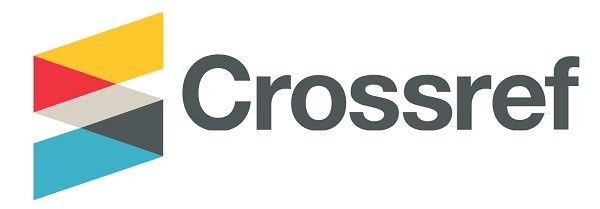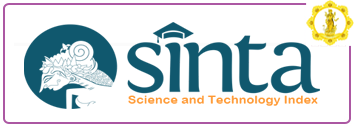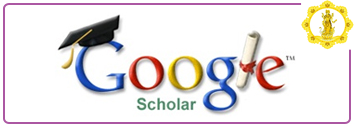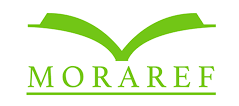Peranan Total Quality Management (TQM) di Sekolah Dasar
DOI:
https://doi.org/10.25078/jpm.v5i2.827Keywords:
Total Quality Management (TQM), Elementary SchoolAbstract
Management of education by creating a conducive learning environment and successfully fulfilling commitments in fulfilling promises as educational leaders. The low quality of human resources is a fundamental problem that can hamper development and national economic development. Along with the advancement of knowledge and technology, the socio-cultural life, socio-economy is increasingly unacceptable to space and time. In order to build the quality of Indonesian people who are able to challenge it, clearly it requires human resources that can be relied upon in the face of competition. TQM is a quality management system that is related to continuous improvement in improving the quality of education from various aspects of sustainability. Educational quality that is acceptable from customer needs and satisfaction. The application of TQM in school organizations is carried out as an effort to improve the quality of education in schools, thereby improving the quality of schools by improving the quality of education of high quality. The implementation of a management system is always disrupted by balance. Two parties who are pro and contra arise, accept TQM and reject TQM. TQM's refusal because it affects changes in management, namely changing established values. With this pillar, it is expected to be able to help schools improve their educational processes. The implementation of integrated Quality Management in schools is inseparable from the efforts of the principal to provide assistance to the school.
Downloads
References
Ahmad, Dzaujak. 1996. Petunjuk Peningkatan Mutu Pendidikan di Sekolah Dasar. Jakarta: Depdikbud.
Barrie Dale dan Heather Bunney. 1999. Total Quality Management Blueprint. Oxford: Blackwell.
Bestefe.1999. Total Quality Management in Education 3rdEdition. London: Kogan Page Ltd. Direktorat Pembinaan SMK. 2005.Kebijakan SMK. Jakarta: Depdiknas.
Cravens, David W. 1996. Strategic Marketing. Jakarta: Erlangga.Nasution, M. N. 2000. Manajemen Mutu Terpadu; Total Quality Management. Jakarta: Ghalia Indonesia.
Darmadji, A. 2008. Implementasi TQM sebagai upaya Peningkatan Mutu Pendidikan di MAN Model Yogyakarta. el-Tarbawi , No 2 Vol 1.
Edward Sallis. 2002. Total Quality Management in Education Third Edition.London: Kogan Page Ltd.
Franklin P. Schargel. 1994. Transforming Education Through Total Quality Management: Practitioner’s Guide. New York: Eye on Education.
Jennifer A. Earnshaw. 1996. “The Application of Total Quality Management to a College of Further Education,” The Management of Educational Change, a Case Study Approach, ed. Paul Oliver. England: Arena.
Jerome S. Acaro. 1995. Qualiy in Education: An Implementation Handbook. Delray Beach Florida: St. Lucie Press.
John Pike dan Richard Barnes. 1994. TQM In Action: A Practical Approach to Continuous Performance Improvement. London: Chapman & Hall.
John S. Oakland. 1989. Total Quality Management. Oxford, Heinemam Profesional Publishing.
Joseph C. Fields. 1994. Total Quality for schools, a Guide for Implementation. Wiscounsin: ASQC Quality Press.
Louis M. Savary. 1992. Creating Quality Schools. Virginia: American Association of School Administrators
Nawawi, Hadari. 2003. Manajemen Strategik Organisasi Non Profit Bidang Pemerintahan dengan Ilustrasi di Bidang Pendidikan. Yogyakarta: Gadjah Mada University Press
Agung, A., Agung, G., Dewi, P. Y. A., & Dantes, K. R. (n.d.). The Organizational Commitment of Teachers at SMP Negeri in Sawan District, Buleleng Regency, Bali Province. 1st International Conference on Innovation in Education (ICoIE 2018). https://doi.org/https://doi.org/10.2991/icoie-18.2019.55
Primayana, K. H. (2016). Manajemen Sumber Daya Manusia Dalam Peningkatan Mutu Pendidikan Di Perguruan Tinggi. Jurnal Penjaminan Mutu. https://doi.org/10.25078/jpm.v1i2.45
Primayana, K. H. (2019). The Implementation Of School Management Based On The Values Of Local Wisdom Tri Hita Karana And Spiritual Intelligence On Teacher Organizational Commitments. Proceeding International Seminar (ICHECY), 154–159. Retrieved from http://jurnal.stahnmpukuturan.ac.id/index.php/ichecy/article/view/134/127
Yulia, P., Dewi, A., & Primayana, K. (2019). Effect of Learning Module with Setting Contextual Teaching and Learning to Increase the Understanding of Concepts. 1(1), 19–26. https://doi.org/https://doi.org/10.31763/ijele.v1i1.26
Sandra Cokeley, et al.2007. Transformation to Performancre Excellence. Wiscounsin: ASQ Quality Press.
Stephen Murgatroyd dan Colin Mogan. 1993. Total Quality Management and The School. Buckingham: Open University Press.
Syafaruddin. 2008. Efektivitas Kebijakan Pendidikan. Jakarta: Rineka Cipta.
Uno, Hamzah B. 2007. Model Pembelajaran Menciptakan Proses Belajar Mengajar yang Kreatif dan Efektif. Jakarta: Bumi Aksara.
Vincent Gaspersz. 2006. Total Quality Management (TQM) untuk Praktisi Bisnis dan Industri. Jakarta: Gramedia Pustaka Utama.
West-Burnham. 1998. Understanding Quality, dalam “The Principles and Practice of Educational Management”. England: Pearson Education Ltd









